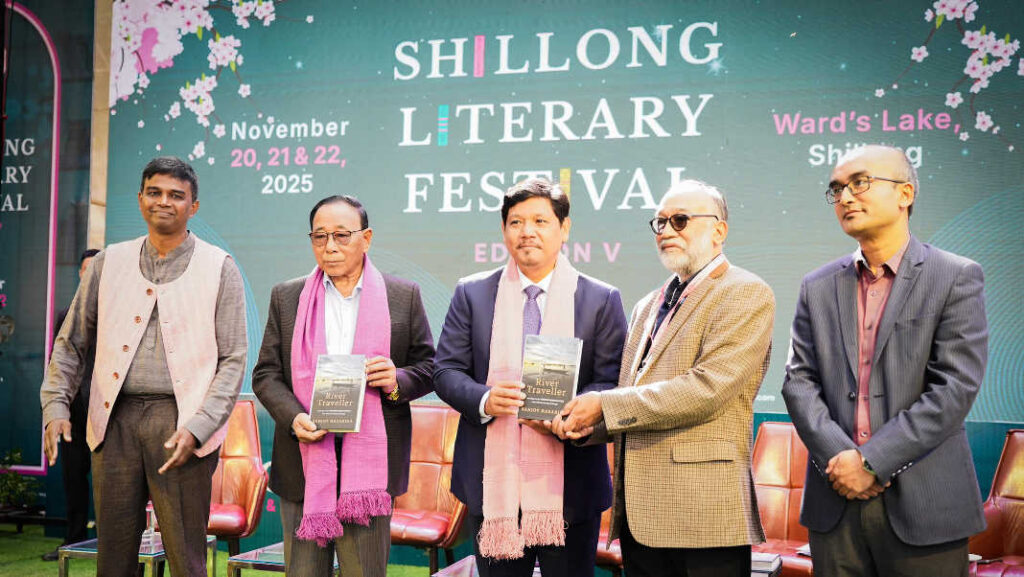Shillong, Nov 21: The second day of the Shillong Literary Festival 2025 unfolded with a compelling blend of policy announcements, book launches, literary conversations, and cultural performances, reaffirming Shillong’s growing stature as a national hub for arts and ideas.
In his opening address, Meghalaya Chief Minister Conrad K. Sangma reflected on the festival’s growth “from a small gathering to a major platform,” and proposed the introduction of a writing competition to encourage young writers. “Meghalaya should become a place where writing becomes part of our system, our culture,” he said.

The Chief Minister announced a major boost to academic research with the expansion of the Chief Minister’s Research Grant, under which 75 scholars will now be supported to conduct research on the Khasi, Garo, and Jaintia tribes. He noted that a dedicated research team is already working to document the roots, histories, and cultural narratives of the three communities.
Reiterating the government’s emphasis on culture-led development, Sangma highlighted a ₹133-crore return from recent cultural investments, strengthening the State’s ambition to position Shillong as India’s next arts and literary capital. He also revealed the upcoming transformation of Ward’s Lake, with ₹20 crore sanctioned and another ₹30 crore in progress. The upgrade will feature a laser installation showcasing Meghalaya’s history and permanent arenas to support year-round cultural programming.
The day began with multiple book launches, including River Traveller – Journeys of the Tsangpo-Brahmaputra, Wad ia ka malade (Khasi), European Writing in the Khasi Hills, BSF and Meghalaya – Through the Lens of a Border Man, and From Isolation to Integration: Geopolitics of India’s Northeast.

In the session “Life Beyond the Metro”, actors and filmmakers Vinay Pathak, Dominic Sangma, and Rajat Kapoor, in conversation with Shahana Chatterjee, explored emerging geographies of Indian cinema and digital storytelling. Dominic spoke of drawing inspiration from oral traditions and shared updates on his ongoing trilogy. Kapoor discussed the challenges facing independent cinema, quipping, “The spirit of filmmaking is alive—but where is the audience?” Pathak expressed gratitude for the festival and excitement about upcoming film collaborations.
Garo poetry took centre stage in a session featuring Prince S.R. Marak, Sengsime A. Sangma, Jakmatchi M. Sangma, Dr. Rhinkle Mrong, and Fivebilson R. Marak, who captivated listeners with evocative performances.
Other highlights included Anita Agnihotri and Sanjoy Hazarika on rivers as living cultural landscapes, Jamling Norgay recounting Everest memories and concerns over overcrowding, Patricia Mukhim on Northeast geopolitics, and discussions on oral traditions, wartime journalism, marginalized narratives, and the craft of second novels.
The evening ended on a high note with MGMP artists lighting up Ward’s Lake, offering a vibrant cultural finale to Day 2 of the festival.

